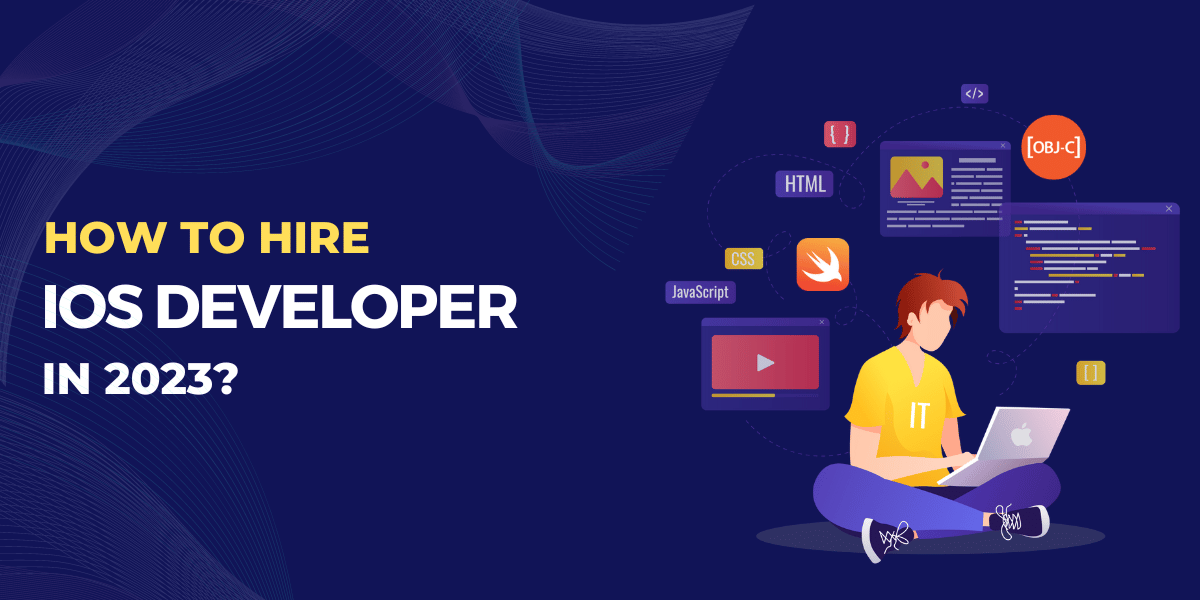14 Tips For Hiring Skilled iOS Developers
In today’s digital age, mobile app development has become a cornerstone of business growth and innovation. With millions of users accessing apps on their smartphones and tablets daily, the demand for skilled iOS developers who can create engaging and user-friendly applications is higher than ever before. However, finding and hiring top talent in this competitive field can be a daunting task. To help you navigate the hiring process successfully, we’ve compiled 14 essential tips for hiring skilled iOS developers to get PDF Editor free.
Understanding Your Project Needs
Before embarking on the hiring process, it’s crucial to have a clear understanding of your project requirements. Identify the scope of your iOS development project, whether you need a native iOS app, a hybrid app, or a web app. Assess the complexity of the project, considering factors such as user interface design, backend integration, and third-party API integration. Define your budget and timeline to establish realistic expectations for the project’s cost and duration.
Evaluating Technical Skills
Technical proficiency is paramount when hiring iOS developers. Look for candidates who are proficient in Swift and Objective-C programming languages, the primary languages used for iOS app development. Assess their familiarity with the iOS Software Development Kit (SDK) and Xcode Integrated Development Environment (IDE), as well as their understanding of app architecture and design patterns such as Model-View-Controller (MVC).
Reviewing Portfolio and Projects
Reviewing candidates’ portfolios and previous projects is essential to assess their skills and experience. Examine the quality and functionality of apps they’ve developed, paying attention to user interface design, performance, and user experience. Look for diversity in their project portfolio, including different types of iOS apps such as utility apps, gaming apps, and e-commerce apps. Check if their apps are available on the App Store and review user feedback and ratings.
Communication and Collaboration Skills
Effective communication and collaboration are vital for successful iOS development projects. Evaluate candidates’ communication skills, both written and verbal, as well as their ability to work collaboratively in a team environment. Look for candidates who can articulate their ideas clearly and are open to giving and receiving feedback. Assess their problem-solving and critical thinking abilities, as these skills are essential for overcoming challenges during the development process.
Cultural Fit and Work Ethic
Cultural fit and work ethic are crucial factors to consider when hiring iOS developers. Ensure that candidates align with your company’s values and culture, as they will be working closely with your team. Look for candidates who demonstrate a strong work ethic, reliability, and commitment to delivering high-quality results. Seek individuals who are passionate about iOS development and show enthusiasm for their work.
Checking References and Recommendations
Before making a hiring decision, it’s essential to check candidates’ references and seek recommendations from peers and industry professionals. Contact previous employers or clients provided by candidates to gain insights into their work performance and professionalism. Additionally, ask for recommendations from colleagues or contacts in the iOS development community to validate candidates’ skills and expertise.
Conducting Technical Interviews and Assessments
Technical interviews and assessments are valuable tools for evaluating candidates’ skills and expertise. Design coding challenges and assessments to assess their problem-solving abilities and coding proficiency. Conduct live coding sessions to evaluate candidates’ ability to write clean, efficient code and solve real-world programming problems. Ask relevant technical questions to gauge their depth of knowledge and understanding of iOS development concepts and best practices.
Considering Remote and Freelance Developers
Don’t limit your search to local candidates; consider remote and freelance iOS developers as well. Remote developers can provide expertise and flexibility, especially for short-term projects or specialized tasks. Evaluate candidates’ communication skills and familiarity with collaboration tools to ensure effective communication and collaboration with remote team members.
Offering Competitive Compensation and Benefits
To attract top talent, offer competitive compensation and benefits packages based on industry standards and benchmarks. Conduct market research to determine salary ranges for iOS developers based on location, experience, and skill level. Provide additional perks or incentives such as flexible work hours, professional development opportunities, or stock options to attract and retain skilled iOS developers.
Utilizing Recruitment Channels and Platforms
Leverage online job boards, platforms, and professional networks to source candidates for your iOS development team. Post job listings on specialized platforms such as Stack Overflow, GitHub Jobs, or AngelList to reach a broader pool of qualified candidates. Network with peers and industry professionals, attend tech events, and seek referrals to identify potential candidates. Consider partnering with recruitment agencies or talent firms specializing in sourcing iOS developers to streamline the hiring process.
Offering Opportunities for Continuous Learning and Development
Invest in the growth and development of your iOS development team by providing access to resources, training, and professional development opportunities. Offer online courses, workshops, and educational resources to support ongoing learning and skill development. Encourage participation in developer communities, meetups, and online forums to stay updated on the latest trends, technologies, and best practices in iOS development. Support attendance at conferences, seminars, and networking events to expand knowledge and network with peers.
Establishing a Trial Period or Probationary Period
Implement a trial period or probationary period to assess a candidate’s performance and fit within the team before making a long-term commitment. Set clear performance metrics and expectations for the trial period to evaluate the candidate’s contributions and suitability for the role. Provide regular feedback, guidance, and support to help the candidate succeed during the trial period and address any areas for improvement.
Creating a Positive Candidate Experience
Prioritize transparency, communication, and personalized experiences throughout the recruitment process to provide a positive candidate experience. Keep candidates informed about the hiring process, timelines, and next steps to ensure transparency. Offer timely feedback and updates to maintain engagement and demonstrate respect for candidates’ time and effort. Tailor the recruitment process to each candidate’s needs and preferences, offering flexible interview scheduling and personalized communication.
Fostering Diversity and Inclusion
Promote diversity and inclusion in your hiring practices by actively seeking out candidates from underrepresented groups and ensuring equal opportunities for all applicants. Create an inclusive workplace culture that values diversity, equity, and inclusion, fostering a supportive and respectful environment for all team members. Embrace diverse perspectives and experiences, recognizing the value they bring to driving innovation, creativity, and success within the team and the organization as a whole.



Post Comment